Voices from Cambodia, Egypt, El Salvador, Kenya and Madagascar on how the World Food Programme is changing lives
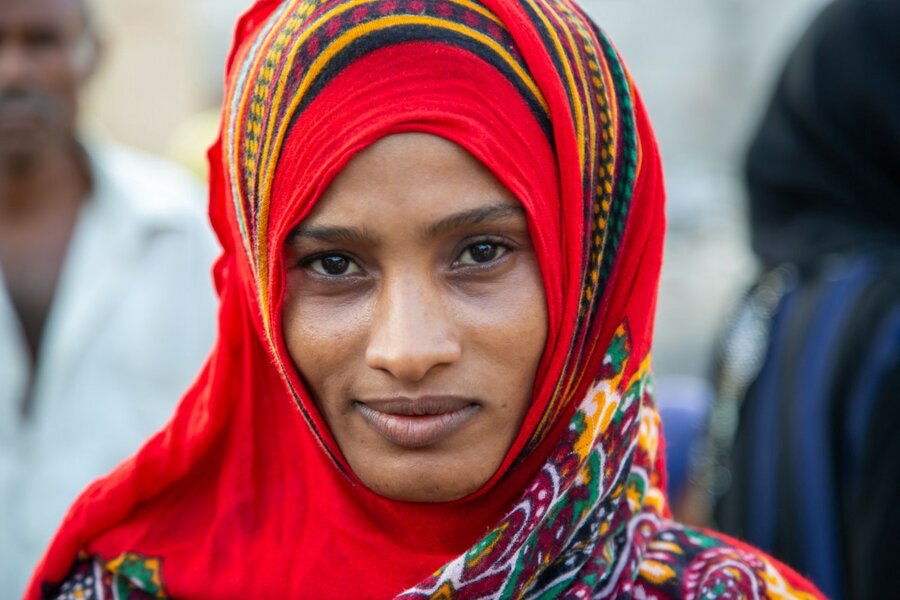
Women make up a little over half of the world's population but suffer unequal access to resources and education in every corner of the globe. Globally, women are more likely than men to suffer from hunger and food insecurity.
Yet women are also forceful agents when it comes ending hunger. In fact, ensuring female farmers have equal access to the tools and resources they need to prosper could decrease the number of people currently living in hunger and poverty by up to 150 million.
The World Food Programme (WFP) is committed to reducing inequality and empowering women with the means to command livelihoods.
1. Sayyida from Egypt: WFP Women in Enterprise trainings
Sayyida Qenawi is a 40-year-old mother-of-three. Her business started as a make-shift stall outside of her house. But after receiving micro-loans and training from WFP, Sayyida was able to expand her business to a store front.
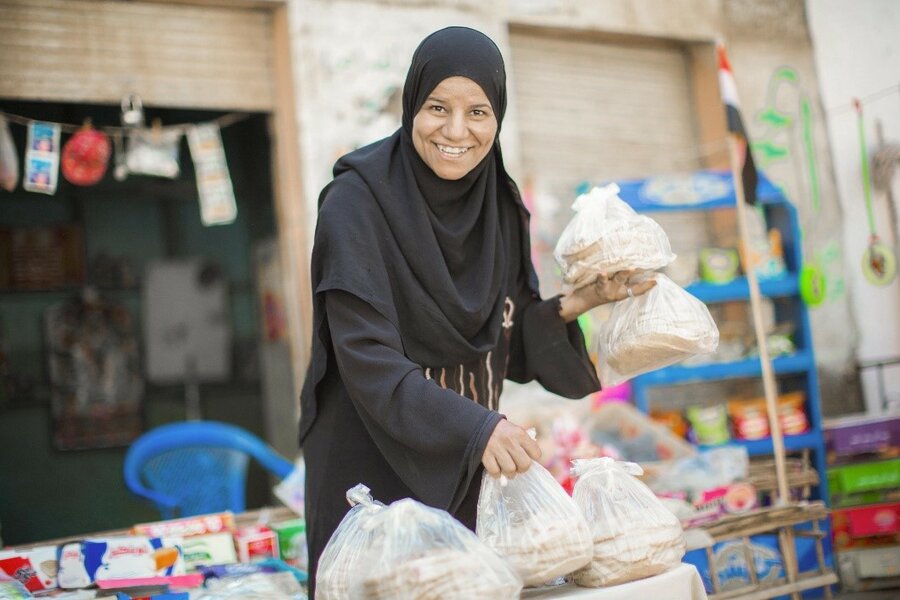
Sayyida's business initially did not take off. But after her son joined a WFP- supported school, she and her husband were offered monthly cash assistance, which both supports them and serves as an incentive. Mothers are offered the chance to get training and microloans to start a small business or grow an existing one.
Today, Sayyida's shop is close to the highway and near two schools, a church, the post office and a community centre. "I have the best location and I am applying everything I learnt in the training. I now even sell fresh bread that I buy and pack here and it sells out before it arrives. All the neighborhood and schoolchildren wait for me until I open in the morning. If I'm late or the shop is closed, they call me to ask when I will open," she says, beaming. "And when I need money, I never touch the store's cache!"
Now Sayyida can afford a lot more than she hoped for; she has no debts, and no one pays for her children Shaimaa, Mohamed and Abdallah's needs but herself.
2. Mary from Kenya: WFP Purchase for Progress scheme
Mary Akamais is a 46-years-old small business owner. She lives outside of Lodwar, in Northern Kenya. She is a mother-of-four, and has six grandchildren. Her family farms half an acre of irrigated land and can harvest up to 18 bags of sorghum per year, each weighing 50 kg.
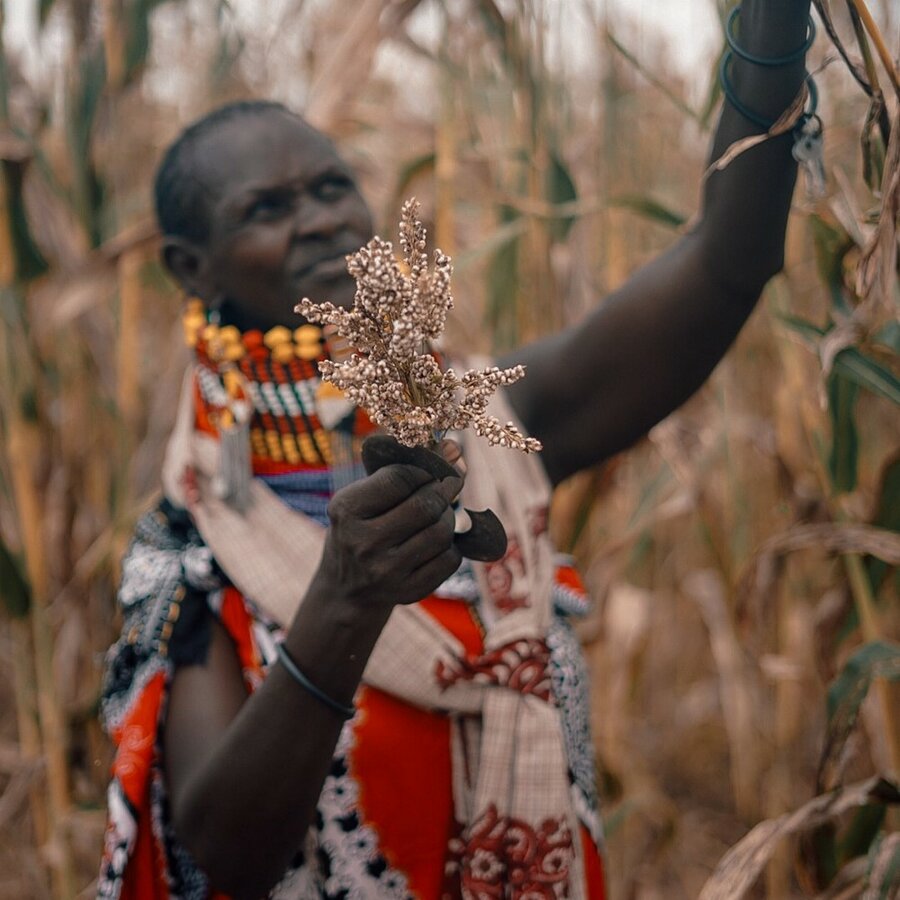
Mary is a former recipient of WFP food assistance, but is now a participant in WFP's Purchase for Progress programme. The initiative provides small-scale farmers - nearly half of whom are women - with training and tools to boost productivity and grow their businesses. The training helps women improve the lives of their families, become financially independent, and access local markets.
Mary is now able to grow enough sorghum to not only feed herself and her family of 12, but also to supply WFP with sorghum to help feed other families. She is a pillar of her community, and has been able to generate enough income to expand her business to employ both her extended family and her neighbors on the farm.
Keo from Cambodia: WFP home-grown school feeding
Keo Horn is a 39-year-old mother-of-four and smallholder farmer from Cambodia. Together with her husband, she looks after a farm where they employ help from the local community. They grow long bean, watermelon, eggplant, chillis️ and gourd.
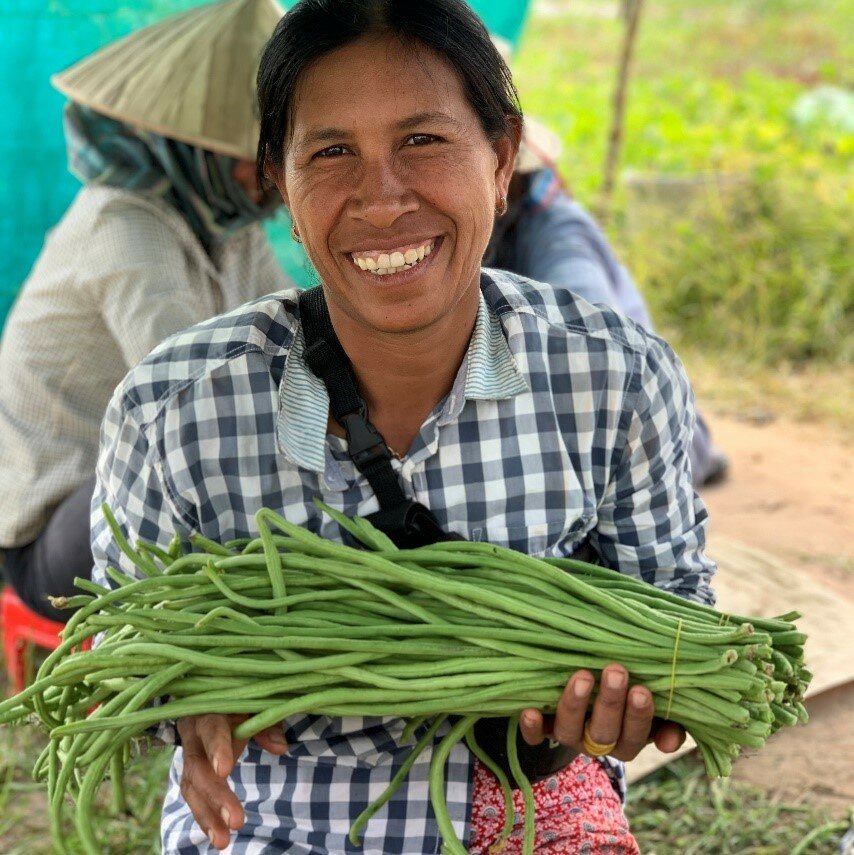
Keo is a participant in WFP's home-grown school feeding programme, which connects farmers and schools to deliver locally-sourced, diverse, nutritious, ingredients for daily school meals. Schools provide local farmers with a reliable outlet for their products, leading to stable incomes, greater investment and higher productivity. Children, in turn, enjoy healthy, diversified diets. This makes it more likely that they will stay and perform better at school, improving their job prospects as adults.
With the crops that Keo is able to grow and supply, she is helping to feed children in schools, further improving their health and development.
Marilala from Madagascar: WFP community gardens
Marilala works in a WFP-supported women's cooperative garden in Mahatangy, Itampolo. It is the largest community garden in Madagascar with the widest variety of fresh produce.
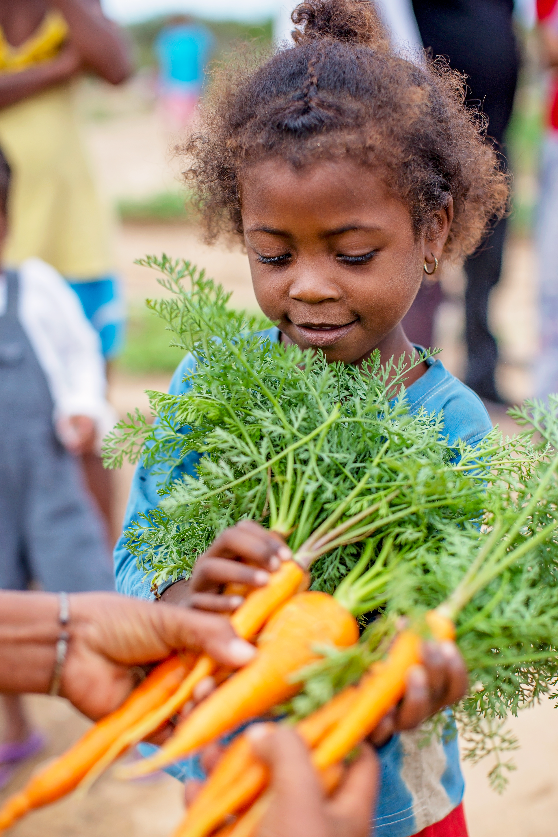
Before working in the garden, Marilala used to go to the forest to find wood to sell. Her family often faced financial insecurity, but thanks to her work in the garden she is now able to feed her family and generate income to send her children to school.
The Mahatangy community garden started on an empty plot of land in 2017. Women working in this garden are provided with training on agriculture techniques for smallholder farmers and nutritional awareness. They are also supplied with domestic water and tools for irrigation which allows them to produce short cycle crops, such as vegetable crops, even during dry months.
Yoselin from El Salvador: WFP cash-based transfers
Yoselin lives in Nueva Granada, a village in the Usulután region of El Salvador, where job opportunities are scarce. El Salvador sits on Central America's so-called Dry Corridor - in 2018, the country of 6.4 million people suffered its longest recorded drought in 48 years. It is a harsh context that is familiar to millions of rural women across the developing world.
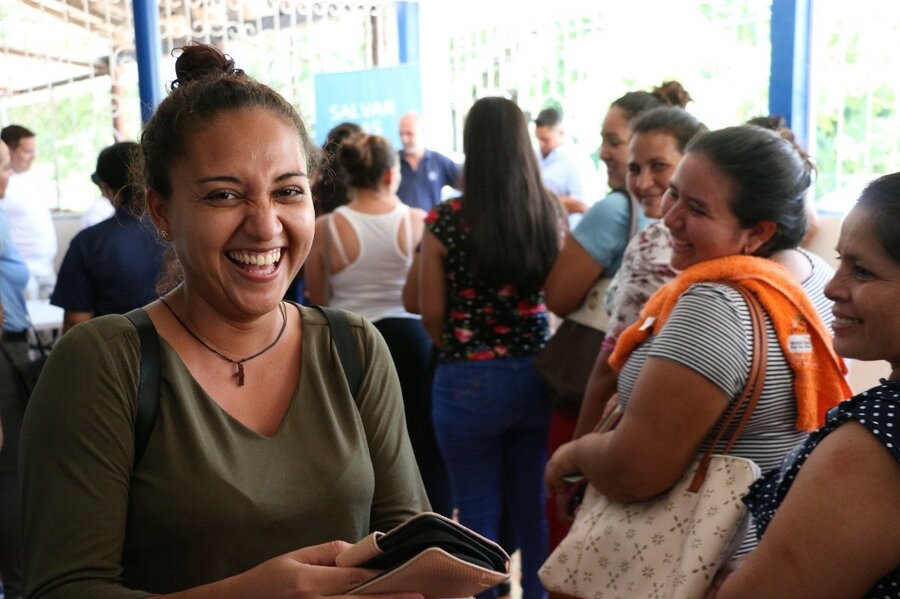
The growing of maize, beans and maicillo, staples of the Salvadoran diet, is widely regarded as a man's job, says Yoselin. Yet families, communities and countries cannot flourish without women, she adds, and the central role they play in progress.
WFP supports women in El Salvador with cash transfers, enabling them to decide what is best for them, and empowering them to make key decisions in their lives. Rural women, many of whom are desperate to earn a living and support their families, are able to generate income and bring healthy food into homes. Cash assistance also strengthens women's roles socially and economically, both in their families and within their communities.






